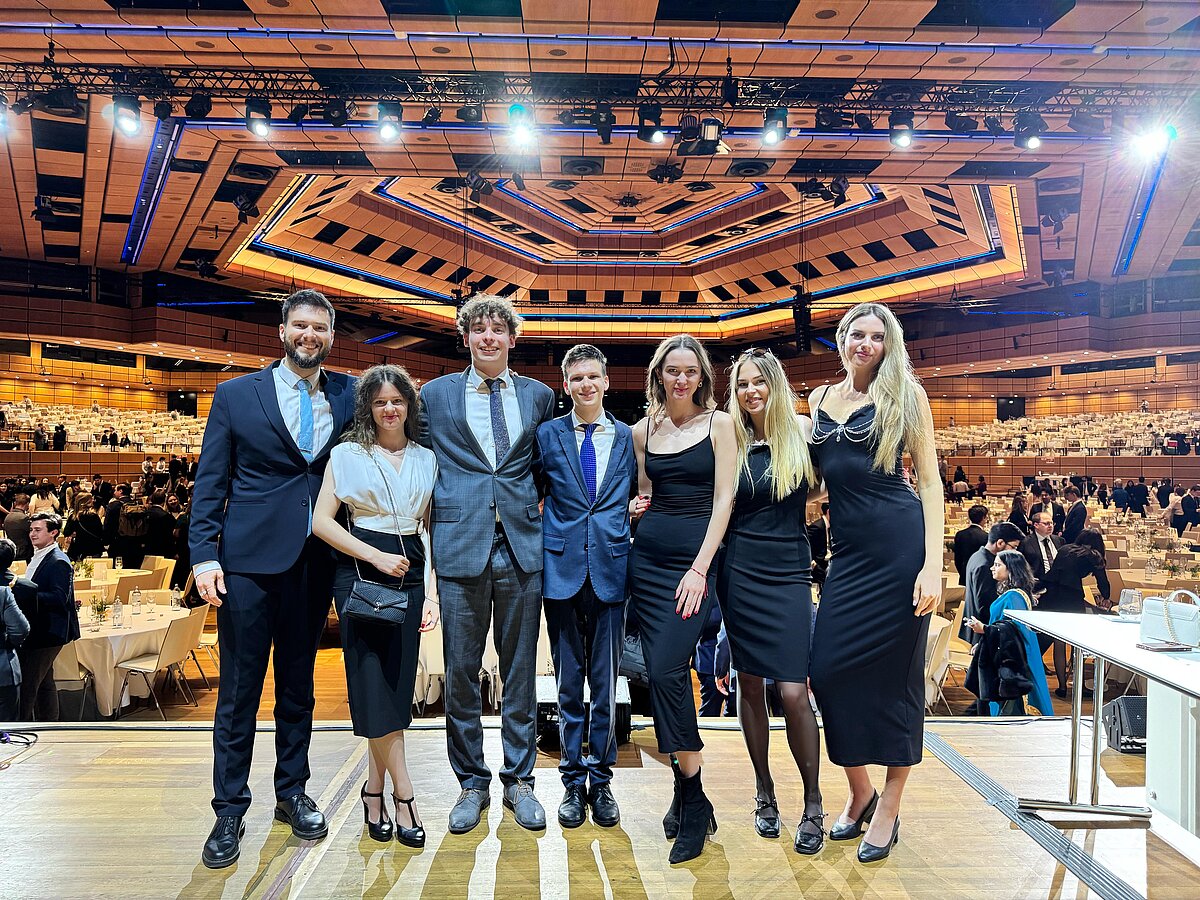
Just before Easter, the 32nd Willem C. Vis International Commercial Arbitration Moot—the world’s largest private law moot—concluded in Vienna, Austria. This year, the competition gathered 384 teams from 88 countries. The University of Latvia Faculty of Law was represented for the 25th time by a team consisting of Paula Šūtava (2nd year Master’s), Evelīna Liepiņa (1st year Master’s), Valters Toms Vasermanis (3rd year Bachelor’s), and Kārlis Ošs (1st year Bachelor’s). The team reflects on their 7-month journey and the intensive preparation process.
Competition Stages and Preparation
The Vis Moot is divided into two phases: written and oral. The team was selected in September 2024, and while the moot problem had not yet been released, participants focused on learning the fundamentals of international arbitration and commercial law. Once the case was published, the team began working on written submissions, preparing claimant and respondent memoranda on key legal issues.
The respondent’s memorandum was submitted on January 30, 2025, followed by intensive preparation for the oral rounds. During training sessions, the team honed their argumentation skills and ability to respond to arbitrators’ questions. To prepare for the competition in Vienna, the team took part in five pre-moot events.
Pre-Moot Experience
The team’s first international experience took place in Istanbul, Turkey, where they encountered teams from various legal systems and jurisdictions. The next pre-moot was held in Riga, organized by the Latvian Moot Association in cooperation with law firms COBALT, Sorainen, TGS Baltic, and Ellex Kļaviņš.
A highlight was the Helsinki pre-moot, where the competition rules followed the Finnish Chamber of Commerce arbitration model. The rounds took place in top law firms like Roschier, Castrén & Snellman, and Hannes Snellman, giving the team valuable experience alongside neighboring countries’ teams.
In March, the team focused on weekly practice sessions to prepare for the April pre-moot in Paris, France, hosted by the International Chamber of Commerce (ICC). This event offered high-level discussions and invaluable experience. From Paris, the team traveled to Belgrade, Serbia, where they competed in six rounds against teams from across Europe and beyond.
Vienna Competition Highlights
In Vienna, the team competed in four rounds against the University of Basel, University of Helsinki, Mathias Corvinus Collegium Law School, and University of Washington, representing both claimant and respondent sides twice. Throughout the week, the team also participated in networking events and met with arbitration professionals and fellow participants from around the world.
One particularly memorable moment was a Baltic teams’ reception at the Lithuanian Embassy, attended by the ambassadors of Lithuania, Latvia, and Estonia, who congratulated the teams on their achievements.
Gratitude to Supporters
The team extends its sincere thanks to their coaches – Katrīna Annija Ročāne, Katrīna Bičevska, Ēriks Krēsliņš, and Artūrs Kazāks – for their dedication and support throughout the preparation process. Their experience and guidance were instrumental to the team’s success.
The team also expresses gratitude to the Latvian Moot Association and law firms COBALT, Sorainen, TGS Baltic, and Ellex Kļaviņš for their continued support in promoting moot court culture in Latvia.

 CONFERENCE
CONFERENCE